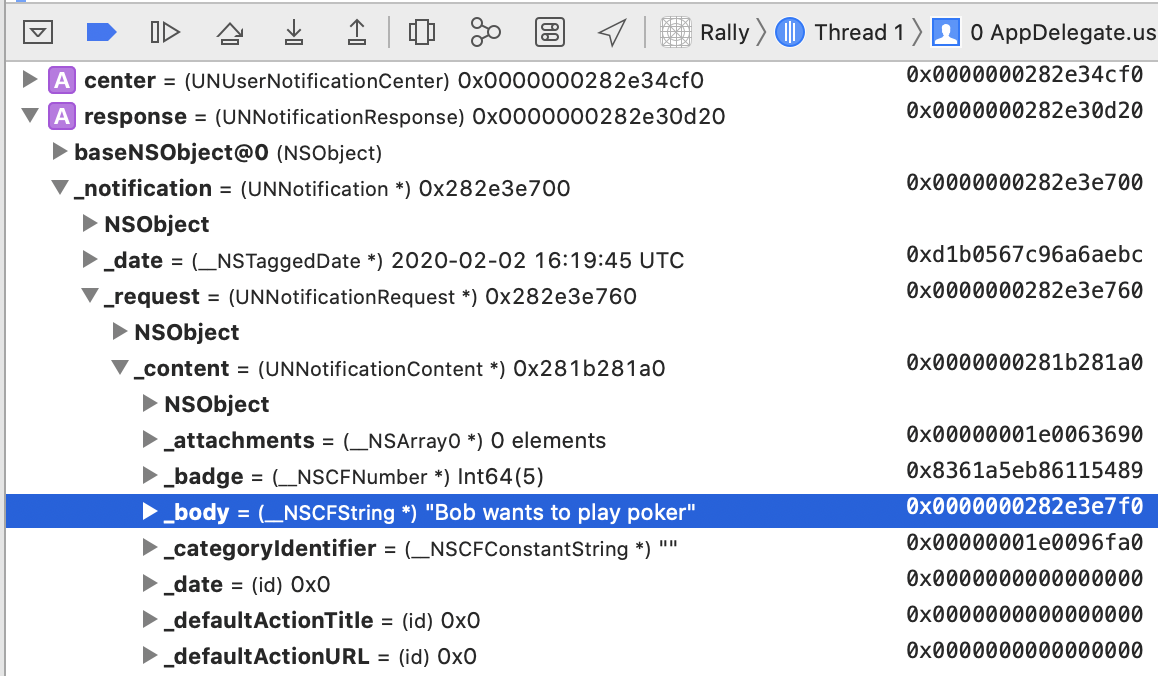I'm sending push notifications from a Django app (using django-push-notifications) to an iOS app. The app targets iOS 13 and I'm running it on an iPhone 7 running iOS 13.3.1. I'm debugging in Xcode 11.3.1
I'm trying two different methods to send the notification from the Django side:
Method 1:
devices.send_message(message={"title" : title, "body" : message}, thread_id="events", extra={"foo": "bar"})
Method 2:
devices.send_message("[will be overwritten]", extra={
"aps": {
"alert": {
"title": "Bold text in the notification",
"body": "Second line in the notification"
},
"sound": "default",
},
"foo": "bar"
})
As far as I can tell, both methods should result in a payload which looks like Method 2.
I'm debugging by doing the following:
- Set "wait for executable to be launched" in my device scheme
- Build and run in Xcode
- Ensure app has been killed in the task switcher
- Trigger sending of remote notification
- Tap on received notification to launch app
No matter what I do, launchOptions is always nil. I've tried setting a breakpoint to inspect the variables. I've tried using os_log to log to the console if launchOptions is not nil, and I've tried triggering an alert (following advice from this question) to rule out Xcode debugger interference. It's always nil.
My AppDelegate currently looks like this:
func application(_ application: UIApplication, didFinishLaunchingWithOptions launchOptions: [UIApplication.LaunchOptionsKey: Any]?) -> Bool {
let notificationOption = launchOptions?[.remoteNotification]
let alert = UIAlertController(title: "Your title", message: notificationOption.debugDescription, preferredStyle: .alert)
let cancel = UIAlertAction(title: "Cancel", style: .default, handler: { action in
})
alert.addAction(cancel)
DispatchQueue.main.async(execute: {
application.windows.first!.rootViewController?.present(alert, animated: true, completion: nil)
})
return true
}
The alert triggers, but the alert content simply reads "nil".
I can't figure out what's missing. It's possible that my notification payload isn't exactly what I think it is (I've asked on the Github page for django-push-notifications to confirm if there's an issue on that end). It's also possible I've missed a step in setting up remote notifications, but I do reliably receive the notifications and they display as I expect, so they seem to be working.
Any advice greatly appreciated!

